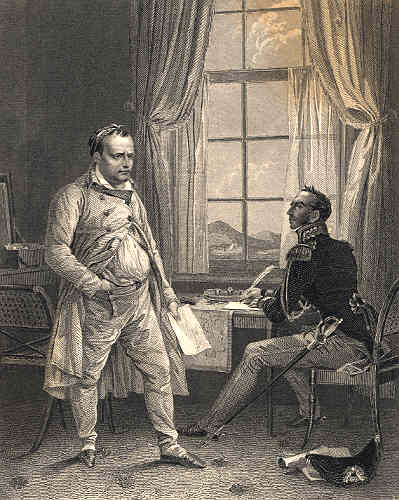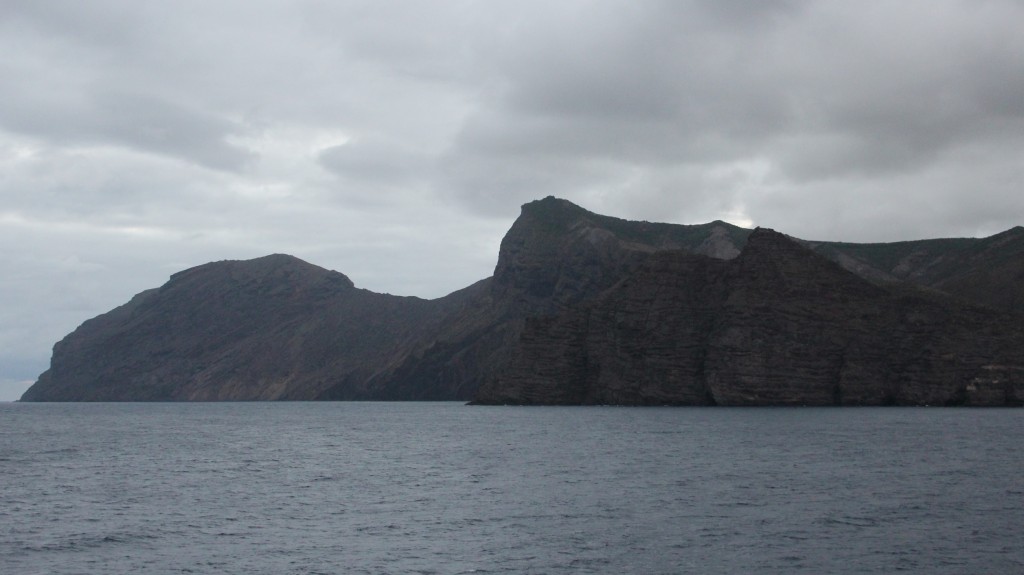On October 15, 1815, four months after his defeat at Waterloo, Napoleon Bonaparte arrived on St Helena Island for his second and last exile. As you can see in the photo above, the island rises out of the south Atlantic Ocean like a forbidding rock in a vacant sea. It’s the very definition of remote: five thousand miles from France, a thousand from the coast of Africa, and eighteen hundred from South America. Its sheer cliffs could forestall rescue attempts. And British forces had already fortified it. During Napoleon’s stay—ending in his death on May 5, 1821—those troops would increase to over 2,000 men.
Just eight months before arriving in St Helena, Napoleon had escaped his loosely-guarded exile on the Mediterranean island of Elba. He’d made the three-day sail to the French coast, and marched 500 miles to Paris, gathering an army and the support of the French people along the way.
But it didn’t really matter what the French wanted. The British, the Austrians, the Prussians, and the Russians were not going to accept Napoleon’s return under any circumstances. Even if Napoleon had defeated the British and Prussian armies at Waterloo, the enemy coalition would have fought on until he was defeated. Ultimately, he had no chance against their overwhelming numbers.
 So why did Napoleon leave his comfortable exile in Elba? Some speculate that he was bored. Others blame Louis XVIII, the restored French king, for reneging on his treaty commitment to supply Napoleon the funds to maintain his 1,000-man army and his status as Emperor of Elba. Or perhaps it was because he’d been separated from his beloved son, the Eaglet. And then came the final straw: rumor that the Coalition powers, meeting at the Congress of Vienna, planned to move him from Elba to St Helena.
So why did Napoleon leave his comfortable exile in Elba? Some speculate that he was bored. Others blame Louis XVIII, the restored French king, for reneging on his treaty commitment to supply Napoleon the funds to maintain his 1,000-man army and his status as Emperor of Elba. Or perhaps it was because he’d been separated from his beloved son, the Eaglet. And then came the final straw: rumor that the Coalition powers, meeting at the Congress of Vienna, planned to move him from Elba to St Helena.
Despite his heroic effort to avoid that fate, St Helena is where Napoleon spent his last five and a half years under an ignoble British house arrest.


Hi Margaret,
A succinct and excellent post. Elba was for Napoleon a trap. The only thing I would add are the plots to murder/kidnap Napoleon whilst he was on Elba, and that many Britons were opposed to their Government’s treatment of Napoleon, but very few had any say in that matter or indeed in anything else.
John Quincy Adams, in Europe heading a US diplomatic team, and not an admirer of Napoleon, noted that Britain’s allies had broken every clause of the Treaty of Fontainebleau.
best wishes
John
John, a belated thank you for your wise comment and early wishes for a happy 2016!
Margaret
Pingback: My favorite Novel about Napoleon Bonaparte (sort of) - Finding Napoleon
Pingback: My favorite Novel about Napoleon Bonaparte (sort of) - Margaret Rodenberg